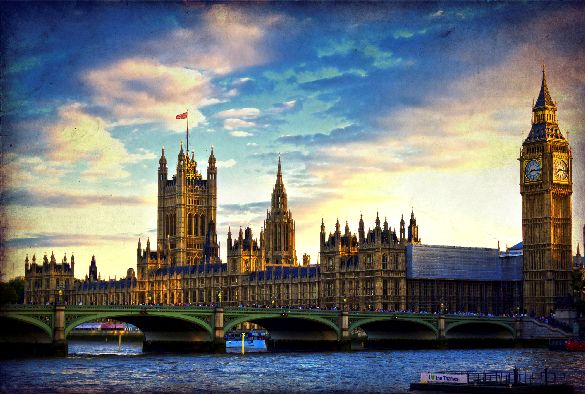
Professor Alan Harding is from the University of Liverpool’s Heseltine Institute for Public Policy and Practice
“The cynics had a field day late last year when George Osborne’s Autumn Statement trumpeted the Coalition government’s aspiration to start building a ‘Northern Powerhouse’. ‘Of course’, it was said, ‘he would say that now, wouldn’t he, with a General Election approaching? After his Government has hammered the poorest areas of the country, found disproportionately in northern England, with eye-watering public spending cuts, and signally failed to deliver on its promise to rebalance the UK economy?’ And they had a point.
Before George’s Damascian conversion to the Northern cause, the Coalition had continued along the path blazed by its Labour predecessor and poured the lion’s share of the limited productive public investment the Chancellor thought he could spare – in infrastructure, science, housing, culture, sport; you name it – predominantly into London and the super-region that surrounds it. Compared to that, the modest promises made in the Autumn Statement to support the Northern Powerhouse could easily be derided as small fry, cobbled together in an attempt to buy northern English votes for the Conservative party and/or position the Rt. Hon. Member for Tatton (Cheshire, North West England) as a Friend of the North, in true One Nation Tory tradition.
A couple of weeks ago, however, the world changed. The Chancellor signed a deal to devolve £6bn worth of health spending per annum to the Greater Manchester Combined Authority (GMCA) which comprises the ten elected leaders – eight of them Labour – of the Manchester city-region. That’s around four times the total sum that specific, named areas in northern England were promised in the Autumn Statement.
Sketchy details
The details remain sketchy. What the deal makes possible in principle, however, is the integration of hospital and GP services, provided by the NHS, and the public health services currently provided by hard-pressed local authorities on a district-by-district basis. It is the biggest single devolution package granted to any area of England outside the capital. It also affords Greater Manchester something approaching the level of autonomy enjoyed, in the field of health, by the devolved administrations in Scotland, Wales and Northern Ireland.
Tony Blair’s first Labour government was, of course, the architect of devolution to the non-English UK nations. It also recreated metropolitan governance for London. One of Gordon Brown’s last acts as Prime Minister was the creation of the GMCA, initially as a shell capable of absorbing functions devolved from central government and its agencies. And yet present-day, national Labour party figures have been quick to criticise the Greater Manchester health devolution deal. Andy Burnham, the Shadow Health Secretary and a North West MP, saw it as a step along the road to the break-up of the NHS whilst Lisa Nandy, MP for Wigan, another North West constituency, felt that the way it had been brokered between Government and the GMCA showed ‘complete contempt for the people of Greater Manchester.’
Their reservations are not shared by seasoned observers of health service re-organisation. Chris Ham, Chief Executive of the Kings Fund, for example, described the deal as “a bold initiative that could bring substantial benefits if implemented well … [It] should enable decisions to be taken much closer to the population being served.. [and]…raises the prospect of a health care system similar to those in the Nordic countries where regional and local politicians often have a more significant part than their national counterparts in the running of health and care services.”
Puzzling
If Labour’s disquiet over the devolution of health services in England is puzzling, given the party’s pro-devolution history, the relative silence about the Greater Manchester deal in the Liverpool city-region (LCR) is, perhaps, more predictable. Liverpool has followed in the wake of its neighbour along the M62 by creating a Combined Authority but the leaders of the six local authorities that are represented on it have not yet made any of the strides achieved by their Greater Manchester cousins.
During the Coalition’s term of office, the GMCA has signed a City Deal and a Devolution Agreement with Government that, even before last week’s announcement, created a substantial programme of devolved responsibilities, designed to support local economic growth and public service reform that strengthen Greater Manchester’s capacity to shape its own future. Liverpool city-region leaders, by contrast, began by arguing about what the Combined Authority should be called, fell out in public about which of them should lead it, and reacted to news of Greater Manchester’s devolution deal by announcing that the six leaders would seek a meeting with the Chancellor ‘to see what is on offer’. That was the wrong question. Greater Manchester’s success has been to convince national government that what it wishes to achieve is beneficial to national policy aspirations, not that it is waiting for Government instruction.
The Greater Manchester health devolution deal is a wake-up call to both the national Labour party and the Liverpool city-region, which have been comprehensively outflanked by an unlikely alliance between a Conservative-dominated government and a Labour-dominated northern city-region. Quite how loudly the alarm bells will continue to sound depends, partly, upon the outcome of the General Election. Both nonetheless need to realise that, in the wake of changes triggered by the referendum on Scottish independence, the devolution genie is now out of the bottle and their health and safety depend upon how they cope with the consequences.”